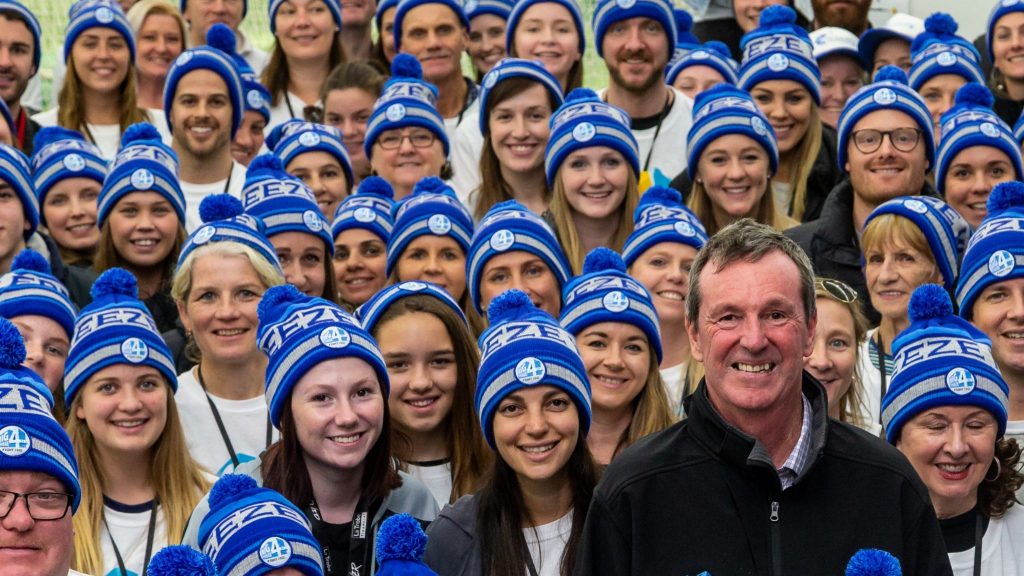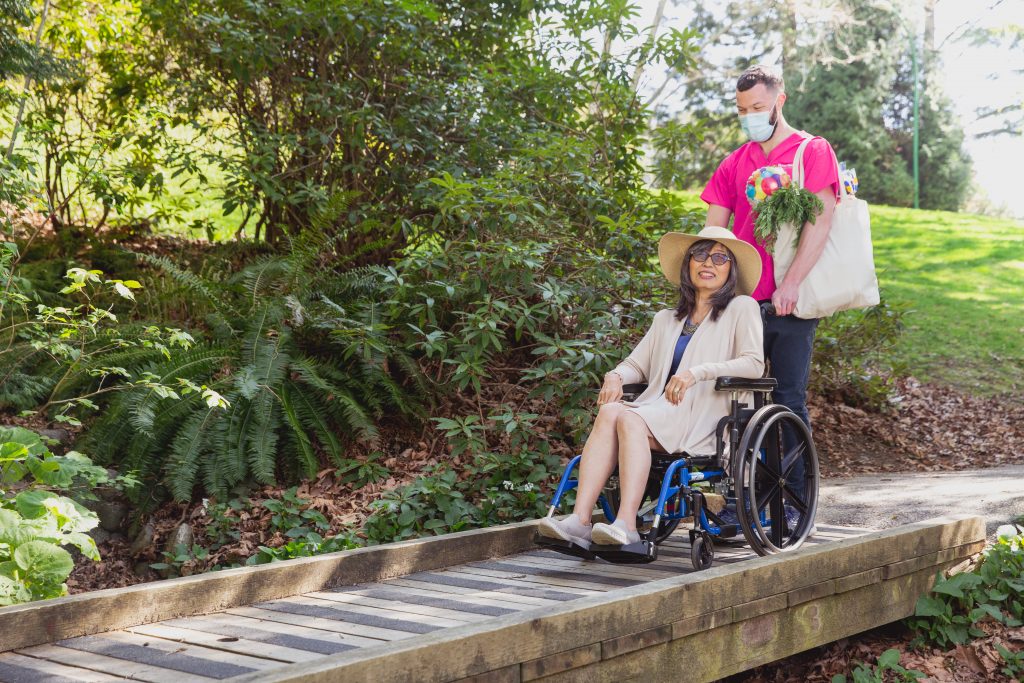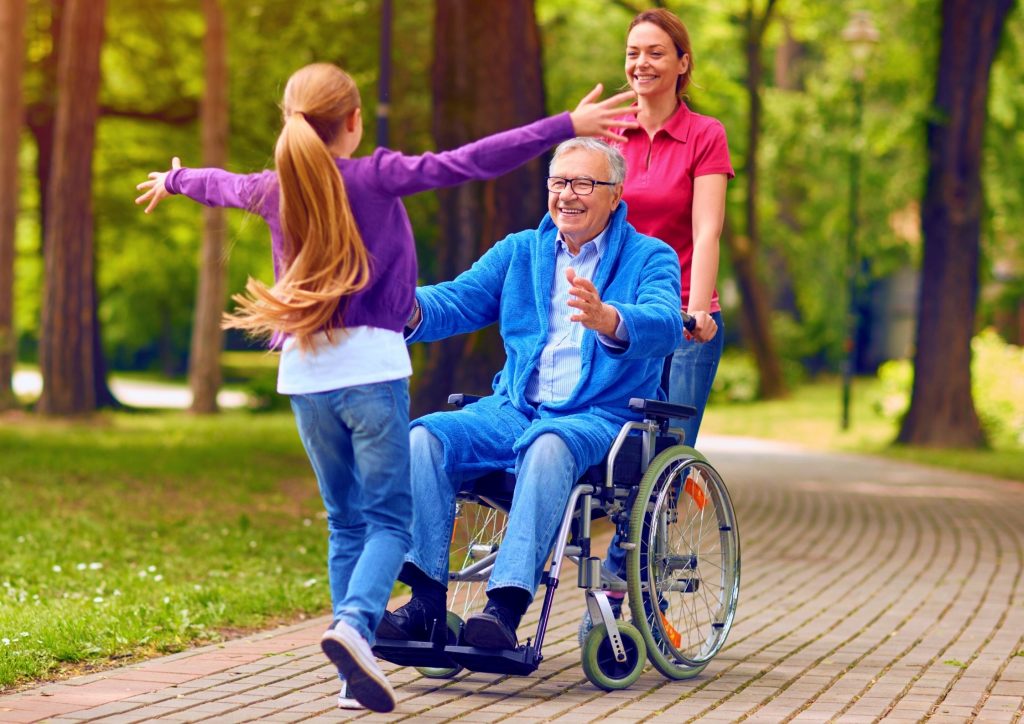How to Help Someone With Motor Neurone Disease
“Help us beat the Beast”
Since 2015 , The Big Freeze event held annually on the Queen’s Birthday has seen Australia’s favourite heroes slide into icy waters with the warmest of hearts, with the likes of Shane Crawford, ‘Razor’ Ray Chamberlain, and Daisy Pearce joining forces to raise awareness for MND.
You can help to support this incredible cause by donating at fightmnd.org.au – where you can also purchase your own Big Freeze beanie.

Neale Daniher and his army of supporters to fight MND (Image Credit: FightMND).
What is Motor Neuron Disease
Motor Neurone Disease, more commonly known as MND, is the name given to the group of diseases in which the nerve cells (or neurones) that control the muscles slowly degenerate and cause muscle weakness. It is part of the neuromuscular diseases.
MND impairs and slowly stops the ability of the neurons to pass messages from the brain to muscles. This means it becomes increasingly difficult, and eventually impossible to move, speak, swallow and breathe. With no viable nerves, the muscles slowly but surely waste away.
The progression and onset of early symptoms look different on a case-by-case basis, but many individuals may initially notice difficulty in performing everyday tasks such as tying a shoelace, holding a pen, or turning a key in a lock.
Eventually, symptoms become so severe that the sufferer is unable to move, breathe, or swallow at all.
Cognitive decline has been reported in only 30-50% of cases, meaning that most sufferers of MND are aware of their loss of function and feel trapped in their bodies. This increases anxiety and depression.
It’s a relentless and aggressive condition, with no truly effective treatment or cure. That’s why it’s so important for more Aussies to join the MND community in the fight to “beat the beast”.
Motor Neuron Disease Quick Facts
- Over half of people with MND are under the age of 65*
- MND is more common in men
- About 10% of MND is familial – meaning that the disease is passed down from generation to generation within the same family.
- The mean age of onset is 58-63 years for sporadic MND and 40-60 years for familial MND
- 50% of patients die within the first 30 months of symptom onset and only about 20% of patients survive longer than 5 years
- In 2016, 791 people with MND died compared with 592 people with MND who died in 2001. The cause of this increase is mostly unknown.
- MND patients have an average lifespan of only 2.5 years
- Every day in Australia, at least two people are diagnosed with and die from Motor Neurone Disease.
Source: fightmnd.org.au/wp-content/uploads/2018/07/MND-The-Fast-Facts.pdf
How to Help Someone With Motor Neurone Disease
It can be a shock for the whole family when your loved one is diagnosed with MND, and can quickly lead to feelings of isolation, helplessness and hopelessness. That’s why it’s crucial for the individual and their family to enlist in emotional support and other services.

With the right medical and palliative care, people with MND can improve their quality of life. Here’s how you can help your loved one feel supported:
1. Managing Fatigue
Fatigue is a common symptom of MND, which is why it’s necessary to conserve energy. It’s helpful to plan your favourite activities in advance, establish a regular sleeping schedule, and make your home environment as comfortable and easy to move around as possible.
2. Alleviating Pain
Pain, swelling and stiffness are common in MND and while there are medications that can help, it is also beneficial to partake in very gentle exercise through the support of an occupational therapist. This can help maintain strength in muscles not yet affected by MND while also helping clear the chest and maintain lung capacity. Even something as simple as having the legs elevated can help alleviate coldness and swelling while promoting circulation to keep your loved one warm.
3. Promoting Better Sleep
People with MND often struggle with sleep due to symptoms of joint pain, excess saliva, and breathing problems, on top of the general stress of their diagnosis. Nurses and/or carers can aid in a better night’s sleep by providing light massages to aching muscles, assistance in moving into more comfortable positions, and reassuring conversations to promote relaxation.
4. Specialised Meal Preparation
Because difficulty swallowing is a common symptom of MND, it’s crucial to modify food intake and swallowing techniques to prevent choking hazards. Caregivers can support specialised meal preparation with puréed (vitamised or blended) foods that are smooth, moist, free from lumps, and easier to swallow. It’s also beneficial to still serve the foods they love, in a variety of flavours and colours, which not only promotes better flow of saliva but also mood regulation too. Carers will also be able to assist with reducing the size of each mouthful and modifying swallowing techniques to prevent any choking.
5. Specialised Equipment
Mobility, communication and respiratory support devices are just some of the types of equipment that can help MND sufferers. It can enable them to be more easily cared for and to stay more connected with their families and communities. Daily activies can also help improve their state of mind.
6. Speech and Communication
Seeking a speech and language therapist who has experience working with MND can help to communicate with a person with MND. As Speech starts to deteriorate it will become increasingly difficult for both parties to communicate with each other.

“At this time of year, we hear a lot about MND fundraising, but not necessarily about how the disease affects an individual and their support group. Here at Nurse Next Door, we work closely with our clients who have MND and their families to help them live the best life possible”
“Whilst it is a big change for the individual diagnosed, MND impacts the whole family.” Says Di. “It brings me true joy knowing that we can help our clients achieve things they may not have otherwise been able to and assist in sharing the load with their loved ones by providing some respite.” – Di Geddes, RN.
Help Fight Motor Neuron Disease
You can help to support this incredible cause by donating at fightmnd.org.au – where you can also purchase your own Big Freeze beanie.
Looking for help?
Try contacting the following services:
Contact your local GP
Contact a Specialist Neurologist
Go to MND Australia
View the Disability Services website
View the Disability Gateway website
View the NDIS website
Contact Nurse Next Door for caring solutions
We believe, that with a positive outlook and an ability to remain in your own home, you are empowered to keep living life to the fullest. For any questions you have about how home care can help you or a loved one remain living independently at home, call us on 1300 600 247 or visit our website nursenextdoor.com.au to organise a FREE Caring Consult.
